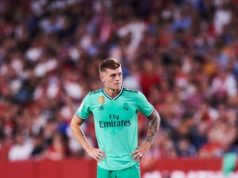Real Madrid will play the Club World Cup on Saturday against San Lorenzo de Almagro; a great chance for Los Blancos to get their previous defeat in the tournament off their chest, since they had no luck in the first edition of the tournament.
FIFA created this championship in January of 2000, and there intention was for the World Cup to replace the Intercontinental Cup that used to reunite the European champion and the South American champion. However, that season both tournaments coexisted, causing chaos in the season calendar. As a matter of fact, that years Champions League winner Manchester United had to renounce to play the FA Cup in order to participate in the World Cup.
Real Madrid played the tournament invited by FIFA as the Intercontinental Cup winners of 1998. The champions of the other continents completed the draw, together with Corinthians, invited as the host country league winners, since it was played in Brazil.
The format of the competition was completely different back then, with two groups of four teams in which the winner of each group would qualify for the final, and the runner-ups would play the match for the third position.
Madrid was drawn in group A, alongside Corinthians, Raja Casablanca and Al-Nassr. Los Blancos played their first game against the Saudi Arabians, earning a hard-fought 3-1 victory. However, there were very good news for Real, as Nicolas Anelka, the most expensive signing of the club at that time, scored his first official goal for Los Merengues.
Vicente del Bosque men faced Corinthians in the second game. A victory would almost qualify them for the final, while a defeat would most likely leave them out. In the end, the match finished with a 2-2 draw, with Geremi missing a penalty for Los Blancos.
Madrid and Corinthians arrived into the last match of the group stage with the same points and the same goal difference, so the Spaniards needed to beat Raja Casablanca scoring one more goal that Corinthians against Al-Nassr. Unluckily for Los Blancos, they would have to play their game before the Brazilians did.
Raja was tougher than expected and Madrid obtained a short 3-2 victory. Corinthians 2-0 win over Al-Nassr sent the Spanish club to the consolation final against Nexaca. Los Blancos didn’t take this game very seriously, lining-up several regular substitutes.
The match ended with a 1-1 draw and Nexaca conquered the third place by winning the penalty kick lottery. In that penalty shoot-out, Samuel Eto’o scored his first goal for Los Blancos. Corinthians would go on to win the title by defeating Vasco da Gama in the final. The tournament didn’t fulfil the expectations, and it was cancelled until FIFA launched it again in 2005 with a different format.




